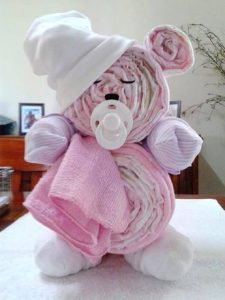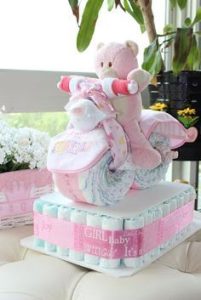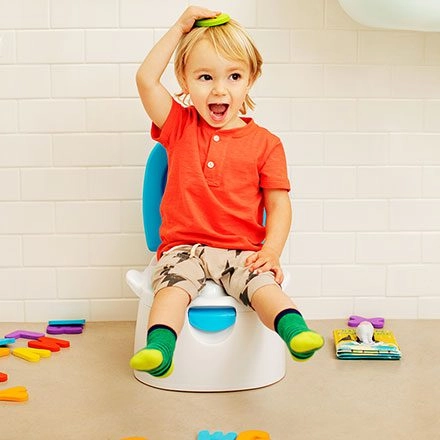Nighttime bedwetting is a common experience for young children. In fact, most children achieve nighttime dryness between the ages of 5 and 7. For parents of children who experience nighttime wetting, night diapers can offer a valuable solution. This article explores the benefits of night diapers, different types available, and tips for choosing the right one for your child.
Understanding Nighttime Wetting
Nighttime wetting, also called nocturnal enuresis, is involuntary urination while sleeping. Here are some common reasons why children wet the bed at night:
Deep Sleep:
Children may not wake up when they feel the urge to urinate.
Hormonal Imbalance:
An imbalance of hormones that control urine production can contribute to nighttime wetting.
Medical Conditions:
In rare cases, nighttime wetting may be a sign of an underlying medical condition. If you are concerned, talk to your pediatrician.
Nighttime wetting is usually nothing to worry about and resolves on its own as your child grows older. However, it can be disruptive to sleep for both children and parents. Night diapers can help manage nighttime wetting and promote a good night’s sleep.

Benefits of Night Diapers
Night diapers offer several benefits for children who experience nighttime wetting:
-
Improved Sleep Quality: Night diapers can help prevent leaks and keep bedding dry. This allows for a more uninterrupted sleep for both children and parents.
-
Boosted Confidence: Nighttime accidents can be frustrating and embarrassing for children. Night diapers can help prevent this and promote feelings of confidence.
-
Reduced Stress: Nighttime wetting can cause stress for both children and parents. Night diapers can alleviate this stress and create a more relaxed bedtime routine.
-
Hygiene and Comfort: Night diapers absorb urine, preventing wet sheets and discomfort. This can improve hygiene and make bedtime more comfortable for children.
Night diapers are not a treatment for nighttime wetting, but they can be a helpful tool for managing it. They can also provide peace of mind and improve sleep quality for children and parents.

Types of Night Diapers
Night diapers come in various types to suit different needs and preferences. Here’s a quick overview:
-
Disposable Night Diapers: These are similar to regular diapers but designed for nighttime use with increased absorbency for longer wear.
-
Pull-Up Night Diapers: These resemble underwear and offer a more comfortable and discreet option for older children.
-
Reusable Night Diapers: These eco-friendly diapers are washable and reusable, making them a cost-effective option in the long run.
Consider your child’s age, comfort level, and budget when choosing a night diaper type. Some night diapers also come with features like wetness indicators or nighttime designs.
Choosing the Right Night Diaper
Here are some factors to consider when choosing a night diaper for your child:
-
Absorbency: Choose a night diaper with high absorbency to prevent leaks throughout the night.
-
Size and Fit: A snug but comfortable fit is essential to prevent leaks and ensure good night’s sleep.
-
Material: Look for breathable and soft materials that will be gentle on your child’s skin.
-
Features: Consider features like wetness indicators or nighttime designs if they are important to you.
-
Your Child’s Preference: Involve your child in choosing a night diaper if they are old enough. This can help them feel more comfortable and confident using them.
Talk to your pediatrician if you have any questions or concerns about choosing a night diaper for your child. They can offer personalized advice based on your child’s specific needs.

Nighttime wetting is a common childhood experience. Night diapers can be a helpful tool for managing nighttime wetting and promoting better sleep for children and parents. By understanding the benefits of night diapers, the different types available, and how to choose the right one, you can make informed decisions to support your child’s nighttime routine.
Nighttime Routine Tips for Successful Night Diapers Use
Night diapers can be a helpful tool for managing nighttime wetting, but they work best when combined with a good bedtime routine. Here are some tips to promote successful diaper use and a restful night’s sleep:
-
Limit Fluids Before Bed: Avoid sugary drinks and excessive fluids close to bedtime. This reduces the amount of urine produced during the night.
-
Set a Potty Schedule: Encourage your child to use the potty right before bed, even if they don’t feel the urge. This helps empty the bladder before sleep.
-
Create a Relaxing Bedtime Routine: Establish a calming bedtime routine that signals to your child that it’s time to wind down and prepare for sleep. This may include taking a bath, reading a story, or listening to calming music.
-
Waterproof Bed Pad: Use a waterproof bed pad under your child’s sheets to protect the mattress from leaks in case of accidents.
-
Positive Reinforcement: Praise your child for using the night diaper or potty throughout the night. Positive reinforcement encourages them to continue with the routine.
Remember, be patient and understanding. Nighttime wetting is common, and it takes time for children to develop bladder control. If you have any concerns about your child’s nighttime wetting, talk to your pediatrician. They can offer guidance and check for any underlying medical conditions.

Alternatives to Night Diapers
There are other approaches to managing nighttime wetting besides night diapers. Here are some options to discuss with your pediatrician:
-
Bladder Training Techniques: These techniques involve gradually increasing the amount of fluid your child drinks during the day and encouraging frequent urination.
-
Bedwetting Alarm: A bedwetting alarm can help condition your child to wake up when they feel the urge to urinate.
-
Medication: In some cases, medication may be prescribed by a pediatrician to help manage nighttime wetting.
The best approach to nighttime wetting will depend on your child’s individual needs and preferences. Talk to your pediatrician to develop a plan that is right for your child.

Conclusion
Nighttime wetting is a common experience for many children. Night diaper can be a valuable tool to promote better sleep and manage nighttime wetting. By creating a consistent bedtime routine, using diapers effectively, and exploring other options with your pediatrician, you can support your child on their journey to nighttime dryness.




